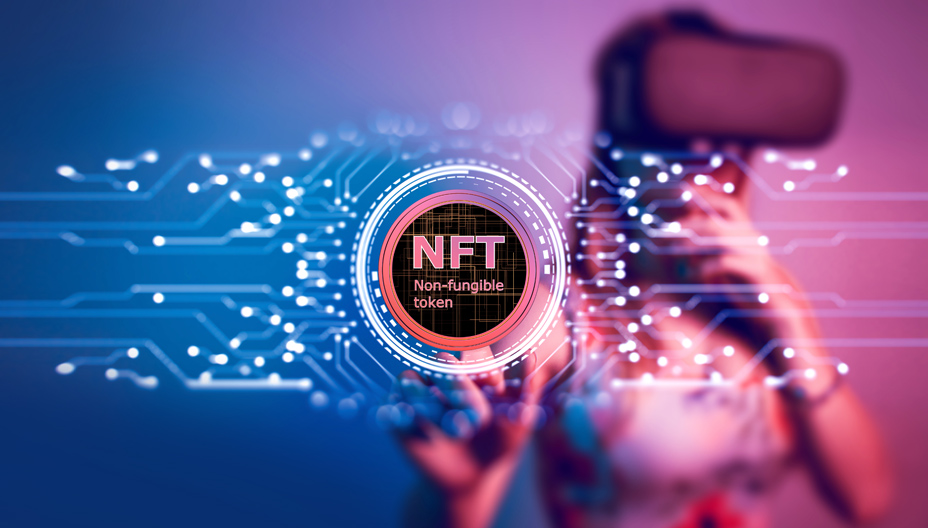Learn
NFTs: Solid Investment or Scam?

NFTs have been the subject of an incredible amount of hype in the media, art collectors, and the investment community. With tweets, gifs, memes, and digital artwork selling for millions1 and some pieces being auctioned off at traditional auction houses like Christie's and Sotheby's,2 should you get in on the NFT wave?
If you're curious about NFTs and are considering making them part of your investment strategy, here's what you need to know.
What are NFTs?
NFT stands for non-fungible token. Non-fungible means it's unique and can't be replaced by something else, while fungible assets are replaceable. For example, trade one bitcoin (a fungible asset) for another, and you'll have the same thing. But one piece of real estate (a non-fungible asset) isn't interchangeable for another—each has unique qualities that add or subtract value.
An NFT is a record on a blockchain (an immutable ledger that can record more than just cryptocurrency) representing a piece of digital media. It can link to digital artwork, text, video, or bits of code. Think of it as a certificate of ownership for a one-of-a-kind digital asset that can be bought and sold like any other piece of property.
NFTs can derive their value from the quality of the work and the reputation of the artist that created it.3 But ultimately, their value depends on what someone is willing to pay for it. So like other works of art, the value can rise and fall.
 Think of an NFT as a certificate of ownership for a one-of-a-kind digital asset that can be bought and sold like any other piece of property.
Think of an NFT as a certificate of ownership for a one-of-a-kind digital asset that can be bought and sold like any other piece of property.
Are NFTs a Good Investment?
Some NFTs have been excellent investments. For example, one NFT collection that's proven to be particularly popular is the CryptoPunks one from the mobile software company Larva Labs. There are 10,000 “punks" (24x24 pixel characters), each with a unique appearance, that were given away for free in 2017.4
Since then, these images have been bought and sold by everyone, from celebrities to Silicon Valley CEOs. According to TechCrunch, “the cheapest punk you can buy will run you about $30,000 in Ethereum cryptocurrency, while the rarest may be worth just shy of $10 million."
However, most NFT investments won't come close to those returns, and you could lose your investment.
Avoiding NFT Scams
Whenever there is money to be made, scammers soon follow, and NFT investors have been targeted by phishing and catfishing scams, pump and-dump schemes, and counterfeit and plagiarized NFTs.5
If you're interested in NFT investing, take steps to avoid getting ripped off. PCMag recommends:
- Doing your homework. Only conduct NFT transactions on a reputable marketplace6 and review the other party's transaction history before engaging with them.
Avoid giveaways, downloading unknown files, and clicking on
links. Hackers create fake pop-ups, malware, and viruses targeting
cryptocurrency wallets, so avoid opening files or clicking on links
sent by people you don't know well. Never give out sensitive
information, such as your seed phrase or private key7 to your crypto
wallet, as scammers can use this information to drain your crypto wallet of digital assets and cryptocurrency.8
Investing in NFTs is a personal decision. If a piece of digital artwork or collectible is meaningful to you, or you want to support a particular artist, think of it as a fun add-on to your portfolio rather than a critical part of your long-term investment strategy. Then approach it as you would any other investment: Do your research, be sure you understand the market and risks, and never invest more than you can afford to lose.
Important disclosure information
This content is general in nature and does not constitute legal, tax, accounting, financial or investment advice. You are encouraged to consult with competent legal, tax, accounting, financial or investment professionals based on your specific circumstances. We do not make any warranties as to accuracy or completeness of this information, do not endorse any third-party companies, products, or services described here, and take no liability for your use of this information.
- Daniel Van Boom, “NFT Bubble: The Craziest Nonfungible Token Sales So Far," CNET, published March 22, 2021, accessed March 2, 2022. Back
- PYMNTS, “About 5% of Sotheby's, Christie's Contemporary Art Auctions are NFTs," published November 8, 2021, accessed March 2, 2022. Back
- Teena Jain Kaushal, "How NFTs Get Their Value," Business Today, updated December 14, 2021, accessed March 9, 2022. Back
- Lucas Matney, “The Cult of CryptoPunks," TechCrunch, published April 8, 2021, accessed March 2, 2022. Back
- Megan DeMatteo, “NFT Scams: How to Avoid Falling Victim," CoinDesk, published January 18, 2022, accessed March 2, 2022. Back
- Tobi Opeyemi Amure, "How to Buy and Sell NFTs: The Ultimate Guide," Investopedia, September 11, 2024. Accessed February 4, 2025. Back
- Binance Academy, “Seed Phrase," accessed March 2, 2022. Back
- K. Thor Jensen, “How to Avoid Getting Scammed Out of Your NFTs," PCMag, published January 21, 2022, accessed March 2, 2022. Back
People are also reading
Do you have questions or ideas?
Share your thoughts about this article or suggest a topic for a new one

